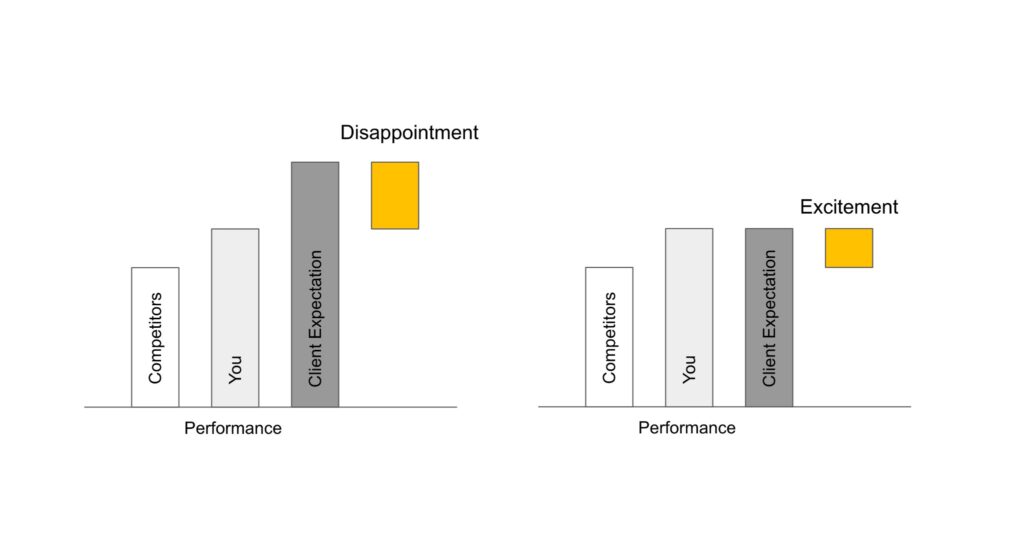
In the vast, dynamic world of agency client management, one of the most critical factors that dictate the success of an agency-client relationship is expectation management. This simple yet profound concept plays an essential role in making sure your clients are not just satisfied, but delighted with your services.
So, why does expectation management matter so much, and how can it lead to happier agency clients? Let’s dive in.
1. Clarity and Transparency
The first reason why good expectation management is key to happy agency clients is the element of clarity and transparency it brings to the table. In an industry where scope creep is a frequent challenge and misunderstandings can lead to dissatisfaction, being clear and transparent from the get-go sets the stage for a healthy relationship.

When you manage expectations well, you are effectively communicating the scope of work, the deliverables, the timeline, and the cost upfront. This transparency means that your clients know exactly what they’re getting into, reducing the potential for unpleasant surprises down the line.
Remember, surprises are fun for birthdays, not business relationships. Clear and open communication helps your clients feel secure, informed, and valued, creating an environment conducive to satisfaction and loyalty.
Agency Owners: Stop losing time with client feedback and approvals. Get our free cheat sheet titled “Feedback Finesse: 6 Tactics for Seamless Client Interactions“ below:
2. Building Trust
The second reason expectation management is crucial is its impact on trust. Trust is the bedrock of any successful business relationship, and it’s no different in agency client management. When you consistently meet or exceed the expectations you have set, you demonstrate reliability and competence, which strengthens trust.
On the other hand, if you overpromise and underdeliver, you risk eroding trust. While it might be tempting to promise the moon to win a client, falling short on those promises can lead to disappointment and potentially sever the relationship.

Good expectation management involves setting realistic targets that you’re confident you can meet or exceed. This helps build a reputation of trustworthiness and dependability, making your clients feel more secure and content with your services.
3. Facilitating Long-Term Relationships
Lastly, good expectation management facilitates long-term relationships. When expectations are managed effectively, it reduces the chances of conflict, fosters better communication, and promotes mutual understanding. This environment makes it easier for relationships to grow and prosper over time.
By managing expectations, you ensure that your clients understand the value of your work and the time it takes to deliver quality results. This understanding can prevent frustration from perceived slow progress or misaligned objectives.
Consequently, it builds patience, appreciation, and respect for your agency’s work, all of which are vital ingredients for a long-lasting, successful agency-client relationship.
4. Framing Outcomes

Expectations of your clients set the tone for how your work results are being perceived. You can be performing 20% better than any of your competitors.
If your client expects you to be delivering 50% above that level, they will be disappointed.Setting the right expectations helps to frame the outcomes so clients know how to take them.
Conclusion
In conclusion, good expectation management is an essential skill in agency client management. It fosters clarity and transparency, builds trust, and facilitates long-term relationships, leading to happier, more satisfied clients. By investing time and effort into managing expectations effectively, agencies can create a robust client base that values and appreciates their work, leading to sustainable business growth.